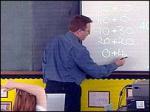Many primary school principals believe male primary teachers should be heterosexual, rugby-playing “real men” if they want to be good role models, new research has found.
One respondent in the study – being published in international journal Gender and Education – referred to the “limp” handshakes of two male teachers who appeared ineffectual and wussy when interviewing for jobs. In that case, strong females were hired instead.
The findings come amid repeated calls to raise the proportion of male primary school teachers, which fell from 42 per cent in 1956 to just 18 per cent in 2005.
Study author Penni Cushman, a University of Canterbury principal lecturer in health education, said the research showed the extent of homophobia and sexism putting men off careers as primary school teachers.
She said a history of sexual abuse accusations against male teachers was also a factor.
Ms Cushman believes attitudes have to change for the number of male primary school teachers to rise.
“We need to be more accepting of a greater range of males in schools – just like we are accepting of a greater range of females in the schools.
“Not all boys or girls are going to relate to a man who’s a rugby player, because not all boys play rugby.”
The survey was sent to 250 randomly selected primary principals nationally, of which 169 responded.
While the initial survey was sent out in 2005, the paper is being published this year.
The majority replied that more male role models were needed – a view shared by 94 per cent of the male principals who responded and 87 per cent of the female principals.
The main reason was to meet the needs of single-parent children. Seven per cent specifically mentioned the need for a “father figure”.
Sports leadership was the second most cited reason why more male role models were needed in schools.
Just 29 per cent added the proviso that a male role model also needed to be a good teacher.
Ms Cushman said the relatively low pay was an issue for male teachers but in earlier discussions many had indicated it wouldn’t determine if they went into the profession.
“I don’t think upping the salary will make a tremendous difference, unless they actually do something about the kind of homophobia and sexism out there.”
Principals Federation president Paddy Ford agreed that more male role models were needed in schools but not that they had to be heterosexual.
“I find that strange. They need to be honest and fair. It doesn’t worry me if they play rugby or not. I’ve been quite lucky with my own staff. We have several male teachers. There’s an ex-Olympian, a rugby player and a ponytail-wearing fella from Britain. It doesn’t make a difference.”
Mr Ford said it was hard enough attracting male teachers, let alone keeping them in the profession, with New Zealand becoming more politically correct.
“They often drop off because of the pressures. There’s a lot of different rules for males. They can’t be in a class by themselves with one child.
“Or if a [student] is sick and the teacher is the only one who can take them home, two students must go with him. It’s just common sense.”
New Zealand Teachers Council director Peter Lind said having a heterosexual male as a teacher was the “absolutely wrong thing to focus on”.
“The most important thing is a good teacher. Someone who can motivate learning, who enjoys working with young people and has the ability to engage.”

